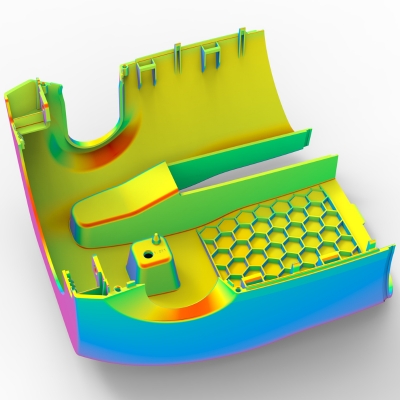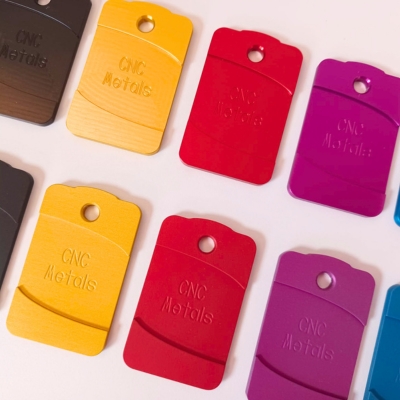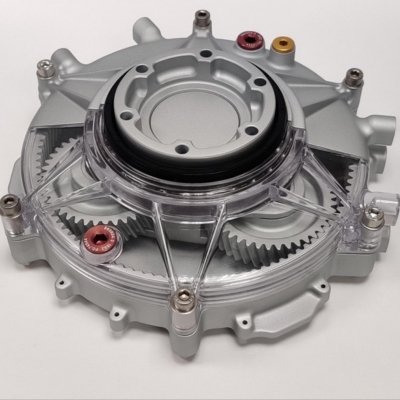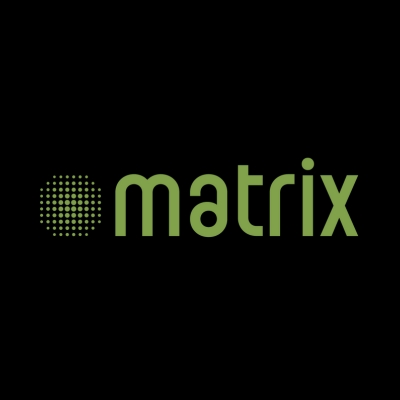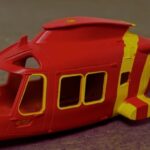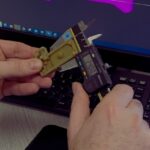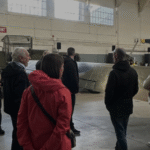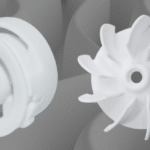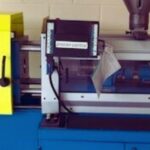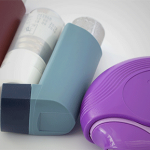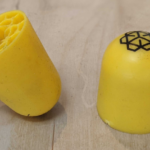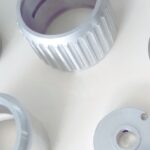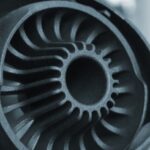- Home
- 3D Printing
- How to Choose the Right 3D Printing Method for Your Prototype
How to Choose the Right 3D Printing Method for Your Prototype
When it comes to developing prototypes, choosing the right 3D printing method can make a significant difference in the success of your project. With the variety of 3D printing technologies available, it can be challenging to determine which method will best meet your needs. This guide will walk you through the five 3D printing methods we offer at Prototype Projects—Selective Laser Sintering (SLS), Stereolithography (SLA), PolyJet, Digital Light Projection (DLP), and PµSL—highlighting their key advantages, suitable applications, and material options.
Selective Laser Sintering (SLS)
SLS is a powerful technology for producing durable, functional prototypes. It works by using a laser to sinter powdered material layer by layer, fusing the particles to create solid parts.
Key Benefits
Durability: SLS is ideal for producing parts that need to withstand mechanical stress, making it popular for prototypes that require functional testing.
Material Range: SLS is compatible with a variety of thermoplastic powders, including nylon (PA12), which offers excellent strength and flexibility. We offer Matrix PA12 CR, a carbon reduced, sustainable material.
No Need for Support Structures: Since the unsintered powder provides natural support, parts with complex geometries can be printed without the need for additional support structures.
Suitable Applications
- Functional prototypes that need to be mechanically robust
- Components with intricate designs, such as jigs, fixtures, and enclosures
- Prototypes that will undergo rigorous testing
SLS is a great choice if you need strong, durable parts with complex geometries. It’s especially suitable for industrial applications where mechanical testing is required before moving to production.
Stereolithography (SLA)
SLA is one of the oldest and most established 3D printing technologies. It uses a laser to cure liquid resin into hardened plastic, layer by layer, offering excellent surface quality and fine details.
Key Benefits
High Detail: SLA excels at producing highly detailed and intricate parts with a smooth surface finish, making it perfect for visual models or prototypes requiring aesthetic quality.
Wide Range of Materials: There is a large selection of SLA materials available, including standard, tough, flexible, and biocompatible options, allowing for versatility in applications.
Suitable Applications
- Models requiring excellent surface finish and intricate details
- Prototypes that need to simulate injection-moulded parts
- Visual models for design verification or client presentations
If aesthetics and fine detail are important to your prototype, SLA is the right choice. It’s well-suited to creating prototypes that closely resemble final products in terms of appearance.
PolyJet
PolyJet 3D printing stands out for its ability to print parts with multiple materials and colours simultaneously, offering an unparalleled level of versatility. This technology jets layers of liquid photopolymer onto a build surface and cures them with UV light.
Key Benefits
Multi-Material Capability: PolyJet allows you to print prototypes using different materials in a single build, from rigid plastics to flexible elastomers, all in the same part.
High Resolution: PolyJet offers excellent resolution and smooth surface finishes, making it ideal for detailed prototypes that require a high level of accuracy.
Colour Options: The ability to print in multiple colours is another advantage, allowing for realistic prototypes that closely resemble final products.
Suitable Applications
- Prototypes requiring a combination of materials, such as soft-touch grips or over-moulded components
- Visual models that need to simulate various textures and materials
- Medical models and ergonomic testing
PolyJet is ideal for designers who need prototypes with multiple material properties, making it especially useful for creating complex parts like over-moulded components.
Digital Light Projection (DLP)
DLP is similar to SLA in that it uses a light source to cure liquid resin, but instead of using a laser, DLP projects an image of each layer all at once, which can speed up the printing process.
Key Benefits
Speed: DLP tends to be faster than SLA, making it ideal for projects that require quick turnaround times.
High Accuracy for Small Parts: DLP excels at producing small, intricate parts with excellent detail.
Wide Range of Resins: Like SLA, DLP also offers a broad selection of resins, from rigid to flexible, as well as dental-grade materials.
Suitable Applications:
- Small, intricate prototypes with fine details
- Dental models and jewellery prototypes
- Fast turnaround projects where speed is a priority
DLP is the go-to technology when high detail and speed are critical. Its ability to print detailed parts quickly makes it a favourite for small, intricate designs that require a fast delivery.
Micro 3D Printing
Micro 3D Printing is a high-resolution technology designed for producing ultra-fine, microscopic features. It uses a UV light source to cure a liquid resin with extremely high accuracy, making it suitable for small-scale applications that require meticulous detail.
Key Benefits
Extreme Detail: Micro 3D Printing is perfect for micro-scale prototypes, where details are measured in microns.
High Accuracy: This technology is often used for applications requiring precise measurements and fine features, such as microfluidics or biomedical devices.
Wide Material Selection: Micro 3D Printing is compatible with a variety of photopolymer resins, including biocompatible and flexible materials.
Suitable Applications
- Micro-scale components like microfluidic devices and tiny mechanical parts
- Biomedical applications such as stents or dental tools
- Prototypes requiring extremely fine features
If your project demands micro-scale details, Micro 3D Printing offers unparalleled accuracy and is best suited for prototypes that require extreme levels of intricacy.
How to Choose the Right 3D Printing Technology
When selecting the right 3D printing method for your prototype, consider the following factors.
Material Requirements
Think about the properties your prototype needs—durability, flexibility, or biocompatibility, for example. SLS offers a sustainable material, PolyJet offers a wide range of materials, while SLA and DLP provide various resins for different purposes.
Size and Detail
If your prototype needs to be small and detailed, DLP and Micro 3D Printing are excellent options. For larger, more robust parts, SLS is a better choice.
Surface Finish
For parts that require smooth surfaces and fine details, SLA or PolyJet are ideal choices.
Speed
If speed is a priority, DLP offers a faster printing process compared to other methods like SLA.
Functional Testing
If your prototype will undergo mechanical or functional testing, SLS is often the best option due to its strength and durability.
Each 3D printing technology offers unique advantages depending on the specific requirements of your project. By evaluating the factors most important to your prototype—material, size, detail, finish, and function—you can make an informed decision about which method will yield the best results. At Prototype Projects, we offer a wide range of 3D printing services to ensure your prototypes meet your exact needs, no matter the complexity.
Whether you need a visually stunning model for client presentations, a functional prototype for testing, or a micro-scale component with intricate details, there’s a 3D printing method suited to your project. Explore your options, talk to us about your latest project, and let the right technology bring your prototype to life.
Talk to us
To discuss your latest prototype project or to arrange a tour of our facilities, please contact us on 01763 249760. You can also request a quote via our website.

